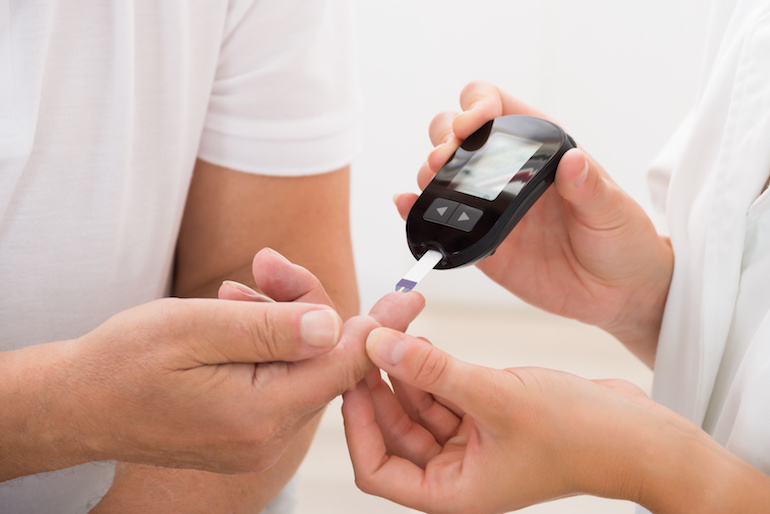
It’s well-recognized in medical circles that obstructive sleep apnea and type 2 diabetes are connected. In fact, one study published in Family Medicine found that people with type 2 diabetes have a nearly 50 percent chance of also having this sleep disorder.
But this connection is lesser known among the general public, it seems. It’s a problem that is mirrored by the lack of awareness surrounding sleep apnea overall, as the American Sleep Apnea Association estimates that 80 percent of moderate to severe cases are undiagnosed.
Today, our goal is to dispel some of that ambiguity. We’ll dive into the links between the two disorders and what symptoms to look out for if you or a loved one have been diagnosed with type 2 diabetes.
How Diabetes and Sleep Apnea Are Connected
The human body is a collection of interlocking systems, all working together and influencing each other every moment of every day. This is why, in many cases, an issue within one part of the body can lead to issues in another part. This fact is especially notable when it comes to obstructive sleep apnea and type 2 diabetes, as the two conditions share many common symptoms, such as:
- Obesity
- Chronic fatigue
- High blood pressure
- Mood swings
- Shared comorbidities like cardiovascular disease
Sleep apnea sufferers experience a cessation in breathing during the night, which causes a tremendous amount of stress to the body and makes the functions that control blood sugar levels far less effective. On the flip side, diabetics also have trouble sleeping due to high glucose levels at night, which means frequent trips to the bathroom and a lack of quality sleep. Additionally, poor lifestyle habits (like not getting enough exercise and excess dietary intake) are risk factors that can lead to either condition. Specifically for those with type 2 diabetes, weight concentrated around the neck can lead to the airway becoming obstructed during sleep, causing breathing to stop and start repeatedly.
The National Center for Biotechnology Information (NCBI) also states that sleep apnea can lead to more insulin resistance and glucose intolerance independent of obesity or other lifestyle factors. It appears that the two conditions are innately connected.
These facts are reflected in the numbers. According to the NCBI, “Up to 83% of patients with type 2 diabetes suffer from unrecognized obstructive sleep apnea (OSA) and increasing severity of OSA is associated with worsening glucose control.”
What to Ask Yourself If You Suffer from Diabetes
Diabetes is an often-discussed condition, and the symptoms of type 2 are generally well known: increased hunger and thirst, frequent urination, and fatigue, to name a few. In contrast, obstructive sleep apnea is the most commonly undiagnosed sleep disorder and chronic disease in Western society.
If you have been diagnosed with diabetes, and find yourself often struggling to fall and stay asleep, ask yourself these questions:
- “Is my bed partner often woken up by my snoring during the night?”
- “Do I ever wake up in the middle of the night with a gasping or choking sound?”
- “Do I often feel irritable throughout the day or suffer from anxiety and mood swings?”
- “Do I feel sleepy during routine tasks, such as working or driving?”
- “Do I have a large neck for my body type?”
- “Am I overweight for my age and height?”
The answers to these questions might indicate that you do indeed suffer from obstructive sleep apnea, which could be making your diabetes much harder to control. If you answered “yes” to one or more of these questions, your next step should be to consult with a doctor.
To learn more about how type 2 diabetes and sleep apnea are connected or to talk about your options for sleep apnea treatment, contact us today at Sleep Better, Georgia to get the answers for your long-term health needs.
